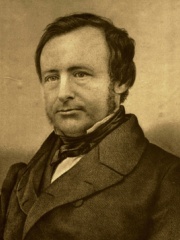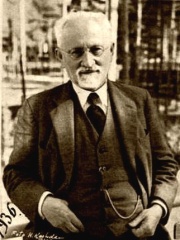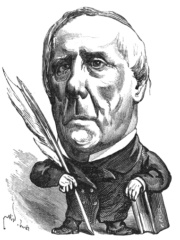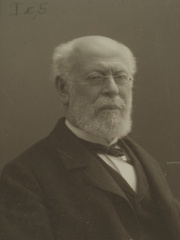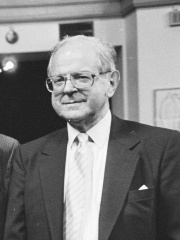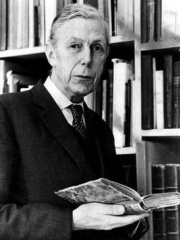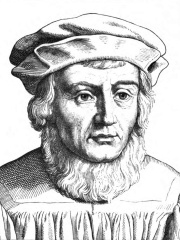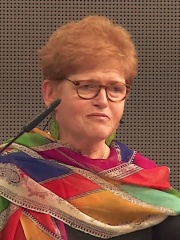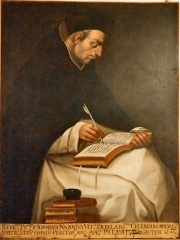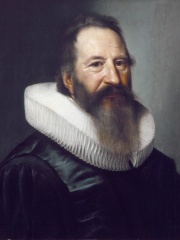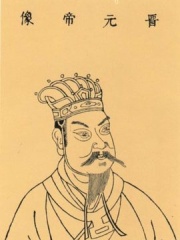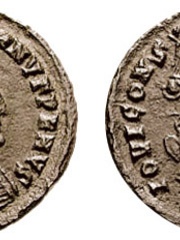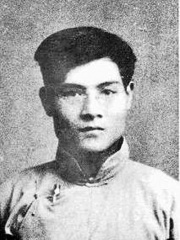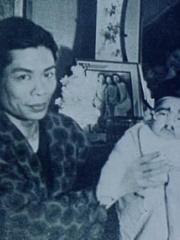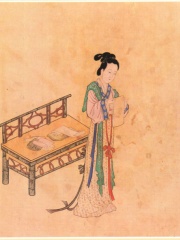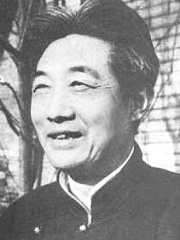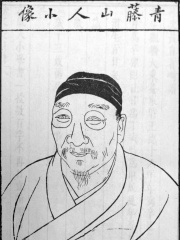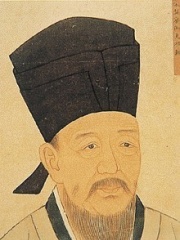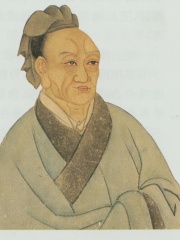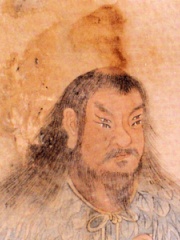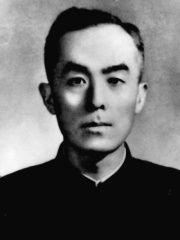Historian
Guo Pu
276 - 324
EN.WIKIPEDIA PAGE VIEWS (PV)
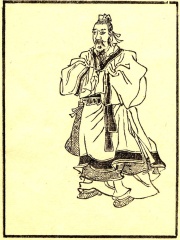
 Guo Pu
Guo Pu
Guo Pu (Chinese: 郭璞; pinyin: Guō Pú; AD 276–324), courtesy name Jingchun (Chinese: 景純; pinyin: Jǐngchún), was a Chinese historian, poet, and writer during the Eastern Jin period, and is best known as one of China's foremost commentators on ancient texts. Guo was a Taoist mystic, geomancer, collector of strange tales, editor of old texts, and erudite commentator. He was the first commentator of the Shan Hai Jing and so probably, with the noted Han bibliographer Liu Xin, was instrumental in preserving this valuable mythological and religious text. Guo Pu was the well-educated son of a governor. Read more on Wikipedia
His biography is available in 18 different languages on Wikipedia (up from 17 in 2024). Guo Pu is the 213th most popular historian, the 669th most popular biography from China (up from 693rd in 2019) and the 4th most popular Chinese Historian.
Memorability Metrics
Page views of Guo Pu by language
Among Historians
Among historians, Guo Pu ranks 213 out of 561. Before him are Peter Andreas Munch, Simon Dubnow, Edgar Quinet, Baha ad-Din ibn Shaddad, Moritz Cantor, and Mahmoud Mohammed Taha. After him are Robert Conquest, Anthony Blunt, Johannes Aventinus, Deborah Lipstadt, Annius of Viterbo, and Gerardus Vossius.
Most Popular Historians in Wikipedia
Go to all RankingsPeter Andreas Munch
1810 - 1863
HPI: 61.49
Rank: 207
Simon Dubnow
1860 - 1941
HPI: 61.36
Rank: 208
Edgar Quinet
1803 - 1875
HPI: 61.36
Rank: 209
Baha ad-Din ibn Shaddad
1145 - 1234
HPI: 61.28
Rank: 210
Moritz Cantor
1829 - 1920
HPI: 61.27
Rank: 211
Mahmoud Mohammed Taha
1909 - 1985
HPI: 61.26
Rank: 212
Guo Pu
276 - 324
HPI: 61.24
Rank: 213
Robert Conquest
1917 - 2015
HPI: 61.19
Rank: 214
Anthony Blunt
1907 - 1983
HPI: 61.17
Rank: 215
Johannes Aventinus
1477 - 1534
HPI: 61.16
Rank: 216
Deborah Lipstadt
1947 - Present
HPI: 61.07
Rank: 217
Annius of Viterbo
1437 - 1502
HPI: 61.05
Rank: 218
Gerardus Vossius
1577 - 1649
HPI: 60.96
Rank: 219
Contemporaries
Among people born in 276, Guo Pu ranks 2. Before him is Emperor Yuan of Jin. Among people deceased in 324, Guo Pu ranks 2. Before him is Martinian.
Others Born in 276
Go to all RankingsOthers Deceased in 324
Go to all RankingsIn China
Among people born in China, Guo Pu ranks 669 out of NaN. Before him are Zhang Guotao (1897), Han Suyin (1917), Lee Hoi-chuen (1901), Faye Wong (1969), Xue Tao (768), and Li Ling (-150). After him are Sima Tan (-165), Xu Beihong (1895), Leizu (null), Xu Wei (1521), Cheng Hao (1032), and Salchak Toka (1901).
Others born in China
Go to all RankingsZhang Guotao
SOCIAL ACTIVIST
1897 - 1979
HPI: 61.35
Rank: 663
Han Suyin
WRITER
1917 - 2012
HPI: 61.34
Rank: 664
Lee Hoi-chuen
ACTOR
1901 - 1965
HPI: 61.31
Rank: 665
Faye Wong
ACTOR
1969 - Present
HPI: 61.27
Rank: 666
Xue Tao
WRITER
768 - Present
HPI: 61.24
Rank: 667
Li Ling
MILITARY PERSONNEL
150 BC - 73 BC
HPI: 61.24
Rank: 668
Guo Pu
HISTORIAN
276 - 324
HPI: 61.24
Rank: 669
Sima Tan
WRITER
165 BC - 110 BC
HPI: 61.17
Rank: 670
Xu Beihong
PAINTER
1895 - 1953
HPI: 61.17
Rank: 671
Leizu
BIOLOGIST
HPI: 61.12
Rank: 672
Xu Wei
PAINTER
1521 - 1593
HPI: 61.07
Rank: 673
Cheng Hao
PHILOSOPHER
1032 - 1085
HPI: 61.07
Rank: 674
Salchak Toka
POLITICIAN
1901 - 1973
HPI: 61.07
Rank: 675
Among Historians In China
Among historians born in China, Guo Pu ranks 4. Before him are Sima Qian (-145), Cangjie (-2650), and Pei Songzhi (372). After him are Zhao Rukuo (1170), and Ji Xianlin (1911).
Sima Qian
145 BC - 86 BC
HPI: 83.52
Rank: 1
Cangjie
2650 BC - Present
HPI: 65.55
Rank: 2
Pei Songzhi
372 - 451
HPI: 61.53
Rank: 3
Guo Pu
276 - 324
HPI: 61.24
Rank: 4
Zhao Rukuo
1170 - 1228
HPI: 56.66
Rank: 5
Ji Xianlin
1911 - 2009
HPI: 54.71
Rank: 6
